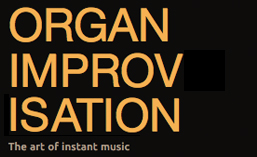I am always doing that which I cannot do, in order that I may learn how to do it.
― Pablo Picasso
My mantra throughout these pages so far has focused on treating the practice of improvisation like we treat the practice of repertoire: choose a passage, practice it over and over again until we get it right and then move on. Because improvisation is the art of instant music, far too often I suspect we finish the task at hand and never consider how we could do it better if we were to attempt that same task again. Mastery requires attention to detail, and the only path I know towards mastery is through repetition.
The Flip Side
Even so, repetition should not lead us into ruts. If we have acquired some degree of mastery creating a fugue on Alma Redemptoris Mater, we need to move on to trying a scherzo on the same theme or perhaps a fugue on Amazing Grace instead. If a passacaglia with ten variations happens to fill the time needed this week’s offertory collection, how many more variations could you could do if your time were not restricted? 10 more? 20? 50? 100? How soon would they start sounding like an earlier variation that you’ve already played?
Do you have a favorite form to improvise for the postlude? How many toccatas on the last hymn have you played? While that may be a great way to practice your toccatas with different themes, how about doing something different?
Broad bases for soaring heights
For many years, I have considered acquiring skills to be like building a pyramid. When you focus on mastering one task, it is the equivalent of building higher and higher. When you expand to a related area, you build out the base. Anyone who has ever played Jenga understands the troubles associated with building too high on a narrow base. With a larger base, it becomes easier to reach the previous highs as well as to reach new heights. When we do something different, we expand our base.
The easiest way to start is by changing one element at a time. If most of our improvisations are in 4/4, how about only improvising in 3/4 for the next week? If you are comfortable in 3/4 and 4/4, how about making this the week of 5/4? Do you have certain keys you favor when improvising? How about choosing a key like F# major or Eb minor to be the tonic for your improvisations this week? These little steps outside of our comfort zones help us build a larger base and will make the tasks within our comfort zone seem that much easier.
Large Leaps
Tackling a task too far away from our current pyramid may not help us reach new heights quickly, but it might also be just what we need to do in order to add another ten layers to our pyramid. Going skydiving might not seem related to our music practice, but if jumping out of a plane can give us more courage to begin improvising with little or no preparation, I say go do it!
How many of last week’s twenty ways to improvise on a hymn are within your comfort zone? How many would be small steps outside? Are there any large leaps required for you on that list? Did you actually try any of the suggestions that were new to you? The road to mastery requires practice and repetition, but you also need to be sure you do something different!
Hoping your improvisations are as magnificent as the pyramids of Egypt!
Glenn
PS One of the best ways to grow is through competition. This week, I wrote a post about the new rules for the 2016 AGO National Competition in Organ Improvisation. I’d love to hear thoughts from other improvisers about the competition and my comments on the new rule set. Please comment at the end of the article, or if you are so inclined, contact AGO directly.
Recent additions to organimprovisation.com:
Organists:
Mode:
Themes
Newsletter Issue 21 – 2014 09 22
See the complete list of past newsletter issues here.
Sign up to receive future issues using the box to the right on this page.
